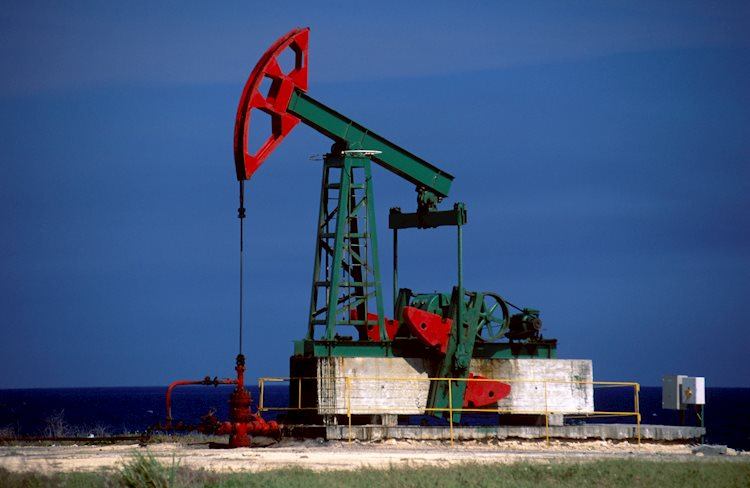- WTI has ebbed back to the low $93.00s after spiking to the $94.60s on reports a Russian invasion of Ukraine is imminent.
- US National Security Advisor Sullivan pushed back against an earlier report that the admin thought Russia would invade next week.
- If Russia does attack next week as US press reported, many traders would expect a swift move above $100.
Front-month WTI futures saw an abrupt surge in recent trade from around the $92.00 per barrel level to as high as the $94.60s to print fresh highs since September 2014. The spike occurred as traders upped the amount of geopolitical risk premia embedded in oil prices in response to US press reporting that the US administration believes Russia President Vladimir Putin to have decided on invading Ukraine. The assault, according to PBS NewsHour, was to begin next week with a bombardment campaign and cyberattacks ahead of a ground invasion, perhaps with the intention to install a puppet regime.
WTI has since ebbed back to the low $93.00s after US National Security Advisor Jake Sullivan spoke to the press and pushed back against the PBS report. US intelligence has does not yet think Putin has made a final decision on whether to invade, he said, but urged Americans to get out of Ukraine while they can. The UK and EU are withdrawing embassy staff, separate reports suggested, while the US is mulling reducing numbers.
At current levels around $93.00 per barrel, despite now being more than $1.50 below earlier session highs, WTI is trading with on-the-day gains of about $3.0, which would mark the best such one-day performance since early December 2021. WTI is also now on course to end the week about $1.0 higher, stretching its winning streak to eight consecutive weeks. Next week, the theme of Russian military action against Ukraine will remain the dominant driver of price action. If PBS was right and Russia does attack, most traders would expect to see WTI swiftly move above $100 per barrel amid uncertainty as to the fate of Russia’s more than 6M barrels per day in oil exports.
